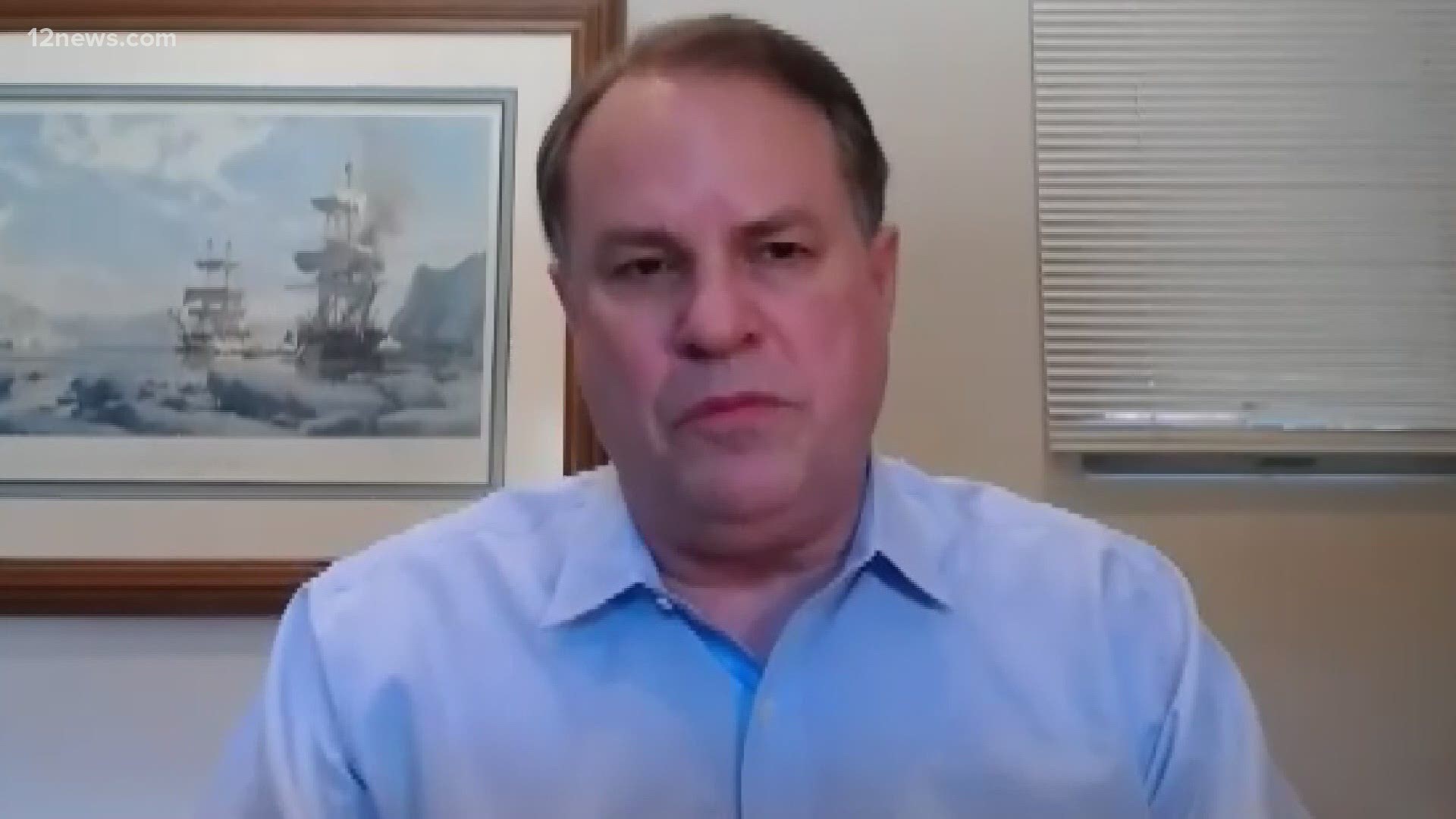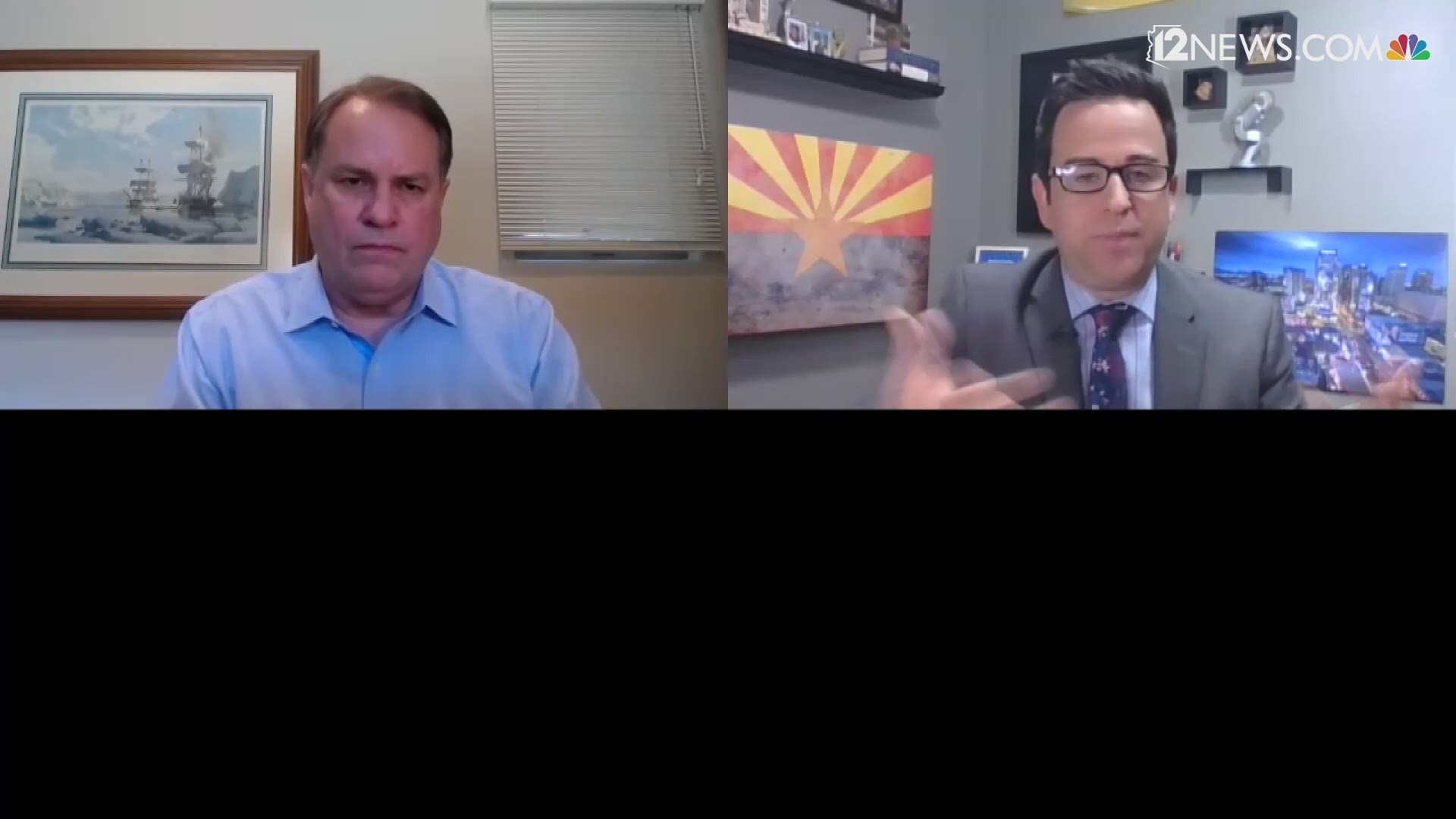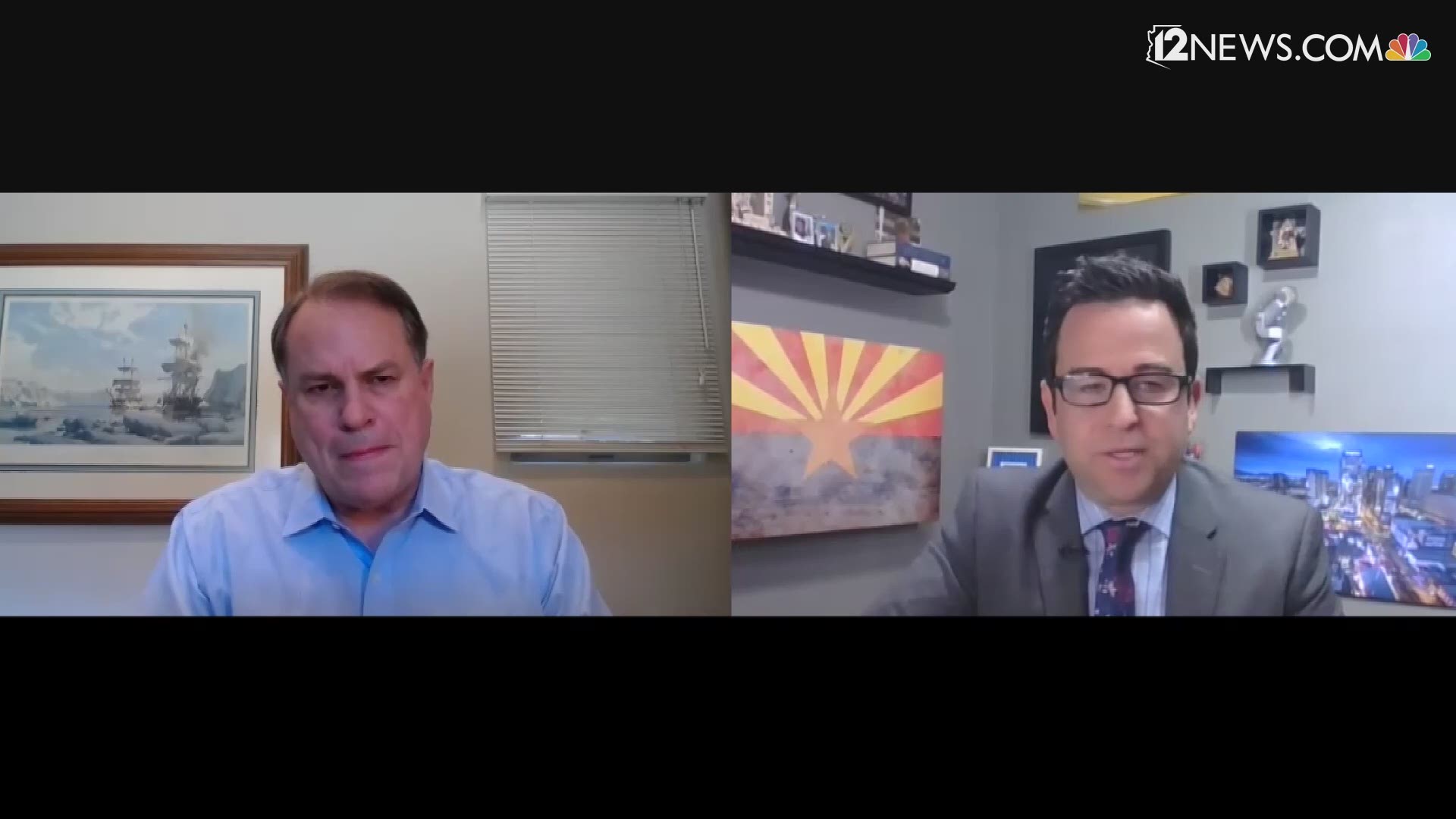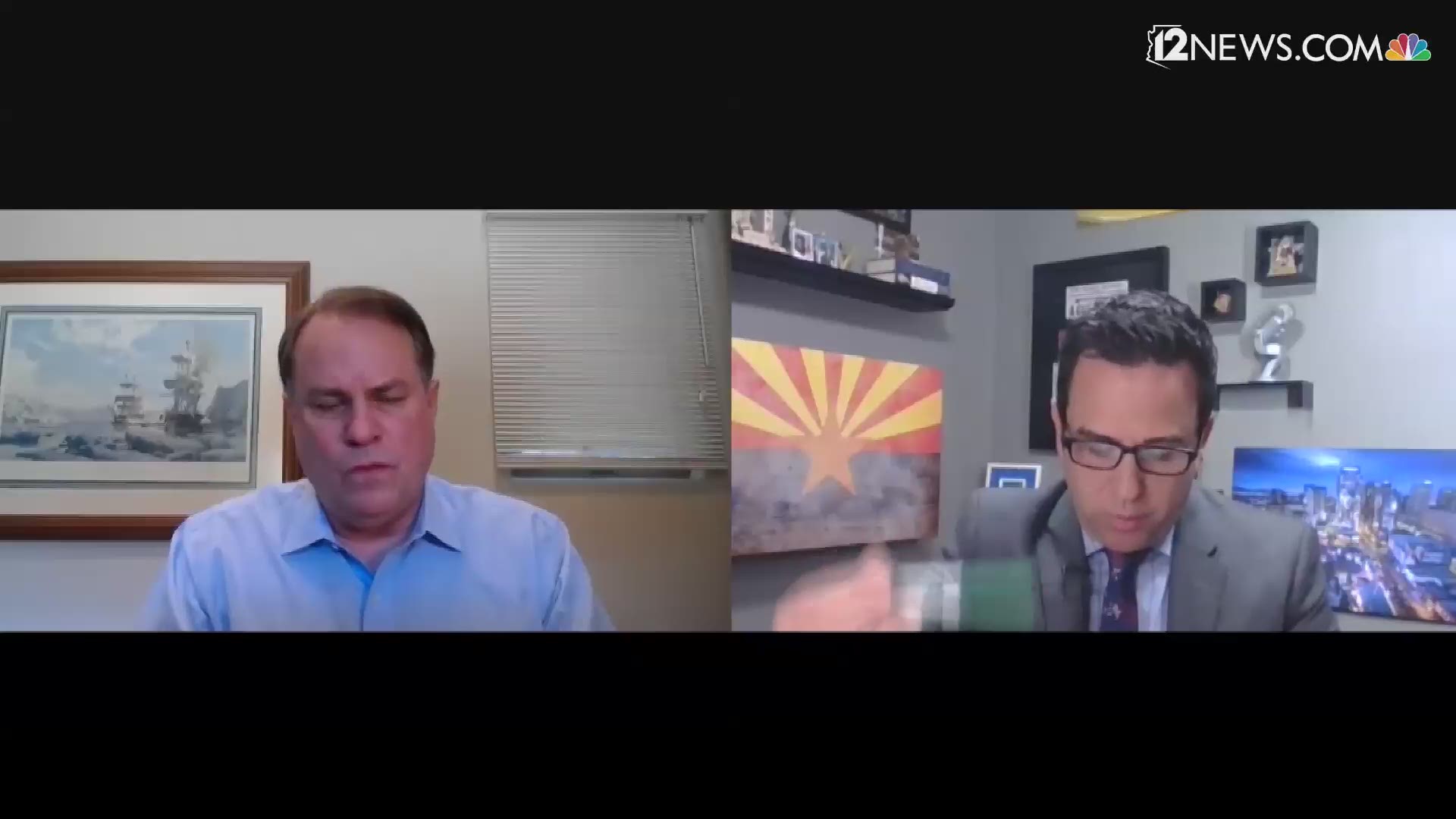ARIZONA, USA — For the first time since a $25 million settlement was announced last week between APS and Arizona Attorney General Mark Brnovich, APS CEO Jeff Guldner is answering questions from 12 News about the agreement, political donations benefitting Brnovich, and other matters facing the utility monopoly as it attempts to usher a new era of trust and accountability.
APS was not transparent with the public
Findings by the Attorney General’s Office and independent audits reveal APS did not adequately educate consumers on ways to save money on electricity after the utility overhauled its service, which involved giving consumers an electricity options menu in 2017.
APS was not transparent with the public in how it implemented rate adjusters, and it offered a faulty online rate comparison tool in 2019 that led many consumers to costlier plans, experts concluded.
At times, the cost of electricity for APS compared to other Arizona utilities has been upwards of 20% higher, and one analyst estimates APS has “over earned” by tens of millions of dollars annually.
“Ultimately when we reached the resolution, it was important we didn’t admit liability but we did get money back to customers,” said Guldner.
Experts discuss whether APS over earned in 2017:
Company needs to "listen” more to captive ratepayers
The civil settlement reached by Brnovich and APS means the utility will reimburse money to more than 225,000 customers who, as of March 2020, could have saved at least $120 annually if they were on a different rate plan. The agreement also means APS will pay $550,000 to a consumer education fund at the Attorney General’s Office.
“I think what we’ve done in the past, and I own this, is that we knew what we were doing and we were good at it and we were experts at it,” Guldner, a longtime attorney at APS and CEO since late 2019, said.
“What we’ve got to do more of is listen. We’ve got a customer-focused group. We’ve got a stakeholder board. We’ve got that in place and I think when we listen to that, things will improve.”
APS is in the middle of a new rate case with the Arizona Corporation Commission to determine how the company will be expected to do business in the future.
“No one at APS intended to deceive consumers”
When asked if he or anyone he knew at APS intentionally acted in a way that would cause consumers to overpay for electricity, Guldner said, “no one at APS intended to deceive consumers.”
Brnovich described the settlement as the result of APS being “taken to the woodshed” but critics want more transparency about the settlement, which was negotiated behind-closed-doors, and some questioned whether the settlement should have been much higher.
Guldner still strongly supports a rate structure that offers choices to customers on electricity usage plans and charges customers more during peak hours.
That model puts a burden on customers to figure out how best to save but is applauded by others who say it alleviates strain on the grid during high-demand portions of the week.
Joe Dana asks APS CEO Jeff Guldner if electricity rates should be this complicated:
Was the investigation thorough enough?
Attorney General Brnovich will not discuss details of the investigation of APS. Critics question its thoroughness.
Guldner said he is not aware of anyone, including himself, CEO Don Brandt, or other APS employees, who were interviewed by investigators from the attorney general's office.
“You do a lot of work through discovery," Guldner said. "So the questions were asked and essentially people prepare responses (in writing) in the same way as if you were being interviewed."
Former Corporation Commissioner Chairman and practicing attorney Bill Mundell, who has previously criticized APS practices, says the public should know everything Brnovich requested through the discovery process to make a judgment on whether the investigation was adequate.
“Did they issue a subpoena for text messages and emails? It seems that would be pretty basic,” Mundell said. “We need to know what the Attorney General did in the investigation to reach the conclusion whether the $25 million was in the public interest.”
ASU Constitutional Law Professor Paul Bender says sometimes written answers provided through the discovery process are sufficient for investigators to make conclusions about a case.
“The information obtained through discovery may have been sufficient, but it’s really difficult to tell in the abstract if interviews were also needed because we don’t know what was obtained through discovery,” said Bender.
A spokesperson for Brnovich has not responded to 12 News's request for details. State law allows the Attorney General to withhold all records of any investigation at his or her own discretion.
APS won’t end future Brnovich political donations
Another reason critics questioned the legitimacy of the recent settlement is due to the utility company's donation history.
Attorney General Brnovich has been a benefactor of more than a half-million dollars in political contributions to the Republican Attorneys General Association by APS and its parent company, Pinnacle West, over the past two election cycles.
Brnovich “walled himself off” from a matter involving APS in 2015 because he did not want his “participation to become a distraction.”
Brnovich told 12 News he did not consider recusing himself from this latest investigation and said he was offended to even be asked the question.
12 News asked Guldner if he was willing to publicly state APS will not make political contributions to Brnovich or any campaign benefitting Brnovich in the future, given the unique circumstances of this settlement.
“We haven’t made any decision on any campaign issues,” Guldner said.
He added he did not believe donations made to the Republican Attorney General’s Association presented a conflict of interest with the Attorney General’s Office.
“I understand the question. I don’t have a position on it today," he said.
Is the Arizona electric grid prepared for a future crisis?
Guldner also discussed the recent crippling cold snap in Texas, and whether utility experts in Arizona are prepared for an unforeseen weather event.
Utility leaders briefed the Arizona Corporation Commission last month in an attempt to assure them the state is not at risk of pinched resources.
Representatives from Southwest Gas, APS, and Tucson Electric Power told the commission they are able to meet customer demands with little interruption.
Power experts say the southwest needs to “harden the system” against extreme weather events because they are becoming more common.
Guldner said he watched what occurred in Texas closely.
APS CEO Jeff Guldner discusses why he's confident in APS' power grid:
“We have protective measures because you can never say never and that’s an important lesson for Texas,” Guldner said, adding that the West is particularly challenged.
He said the response from consumers during a crisis will help Arizona avoid a catastrophe.
“We made it through last summer without pulling the emergency energy alert. I want to personally thank our customers when we called for voluntary conservation, we got a pretty significant response to that,” Guldner said.
Arizona has seen its fair share of severe weather. Watch a compilation of videos from various storms across the Grand Canyon state on our 12 News YouTube Page here.




